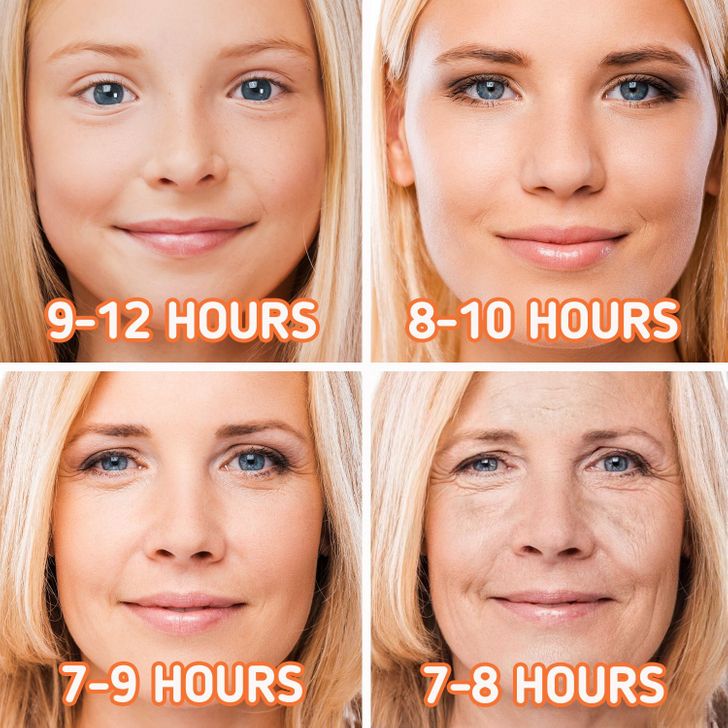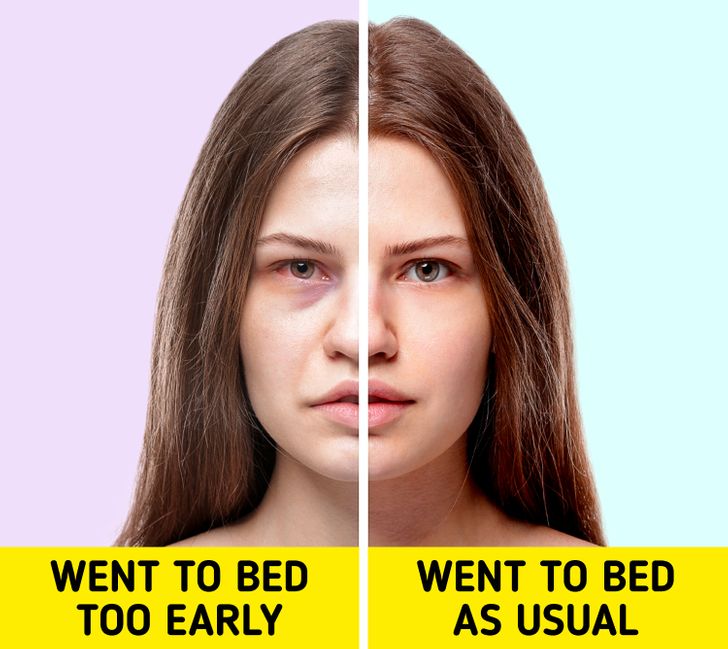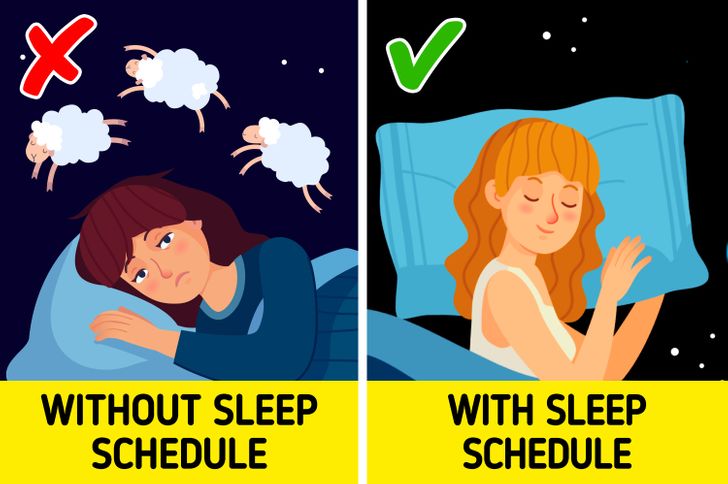Great
How to Calculate the Perfect Time to Fall Asleep and Wake Up
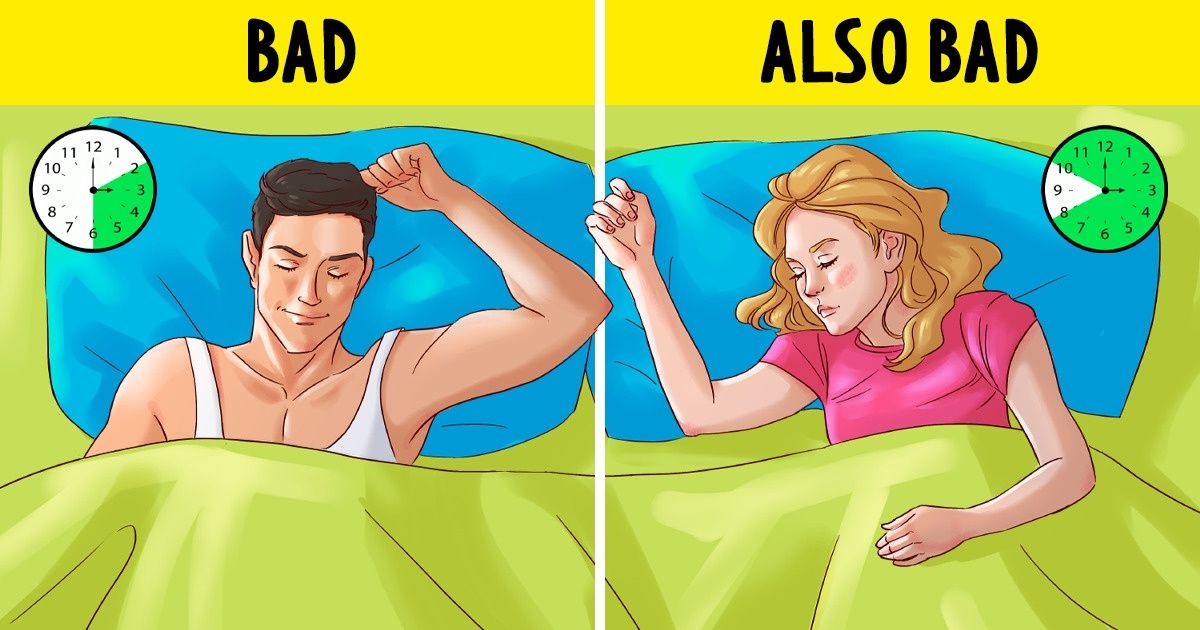
We spend one-third of our life, sleeping, or attempting to fall asleep. And yet, the statistics say that every third adult in the US doesn’t get enough sleep. That’s a lot of tired people! The time when we are in dreamland is crucial for our brain, which recharges our health, and even our beauty. This problem could be easily solved if we would just go to bed at a certain time.
We at Bright Side want all the sleepy heads to finally get enough rest, so we figured out the perfect time to hit the hay.
1. Start with choosing when to wake up.
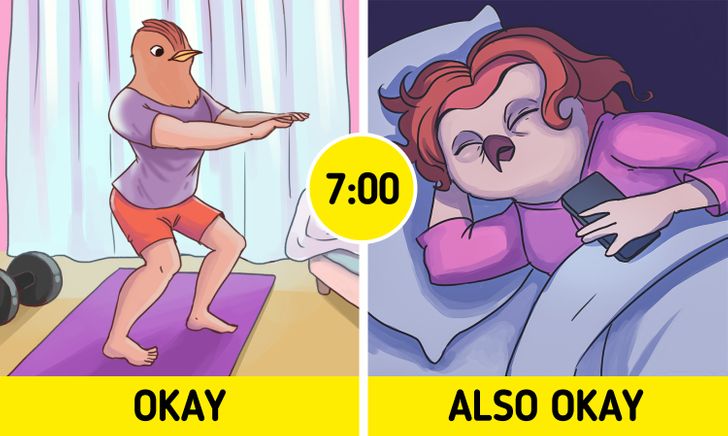
To know what the best sleep schedule for you is, you need to decide the time you want to wake up. The latest research indicates that there’s no difference between waking up early in the morning, or sleeping until the late afternoon. But it’s crucial to keep in mind that if you want to wake up fresh and relaxed, you need to set an alarm for the same time, 7 days a week.
2. Know how much time you need for sleep.
The amount of sleep needed changes throughout our life. When we were kids, we had to sleep up to 14 hours, but at the age of 20-40, we only need about 7 to 9 hours of sleep. Think about how much you usually sleep before you wake up full of energy, and listen to your body to figure out what the perfect amount is for you.
3. Calculate what time to go to sleep.
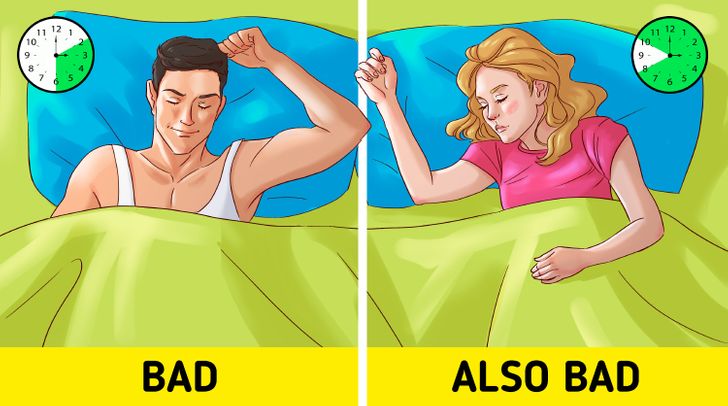
Once you know what time you will wake up and how many hours of sleep you need, you’ll have the perfect formula for when to go to bed. If you stick to this schedule, your body will naturally feel sleepy at the necessary time and you will be able to wake up easily.
Let’s say that, based on your age and experience, you know you need 7 hours of sleep, and you decide that you’ll wake up at 8 AM every day. In this situation, you would have to go to bed at 1 AM. But if you decide to change your schedule and wake up at 6 AM, from that moment you’d need to hit the hay at 11 PM, every day.
4. Earlier isn’t necessarily better.
It’s often believed that people need to go to sleep at around 10 PM to get better quality sleep. But recent research from Harvard has proven this wrong. Scientists say that even night owls were able to perform well during the daytime, as long as they had regular sleeping hours. So if you go to bed at 3 AM and wake up at 10 AM, that’s fine, as long as you consistently do the same thing.
5. Keeping a consistent sleep schedule is the key.
The best thing you can do to improve your sleep quality is to go to bed at the same time every day. Not only will it make it easier to fall asleep, but it’ll also make you smarter and happier. On the other hand, not getting enough sleep on weekdays and sleeping extra on the weekends leads to diabetes, obesity, and poor cardiovascular health.
6. Going to bed late requires extra sleep hygiene.
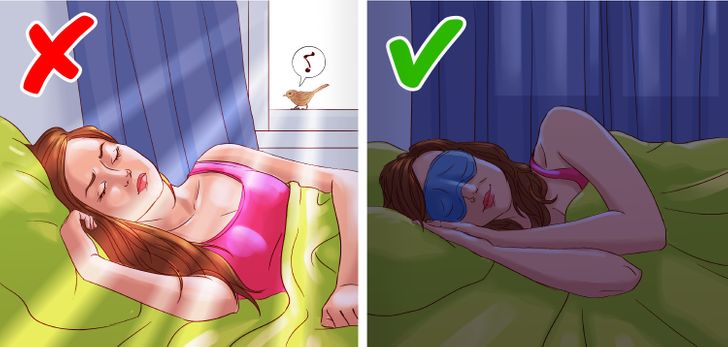
After finding out that you don’t have to be a goody 2 shoes to get good sleep, it’s still important to take care of your sleep hygiene, like not watching an exciting movie before bedtime, not going to bed hungry, or not sleeping in a bright, noisy environment. Taking care of simple things, like muting your smartphone and using blackout curtains, can also drastically improve the way you look after you wake up.
What are your sleep habits? Would you use any of these tips to get better rest?
Comments
Related Reads
I Refuse to Support My SAHM Wife After Discovering Her Secret

My Neighbor Disrespected My Privacy—My Revenge Was Sweet

I Refuse to Help My Pregnant Sister, and I Don’t Feel Guilty

11 People Whose Small Acts of Kindness Turned Tears Into Smiles

10 Moments When Kindness Was the Ultimate Power Move

10 Moments Where Kindness Didn’t Argue—It Acted

12 People Whose Kind Hearts Became a Lifeline in Someone’s Darkest Moment

10+ People Who Went on Holiday for Comfort but Got a Crazy Story Instead

I Charged My MIL for Christmas Dinner, Even Though She’s Always Helped Us for Free

16 Moments That Show Kindness Is the Quiet Courage the World Needs

I Refuse to Earn Less Just Because I’m Getting Older

I Gave My Grandkids Their Inheritance at 18 — Their Stepmom Says I Destroyed Her Blended Family

